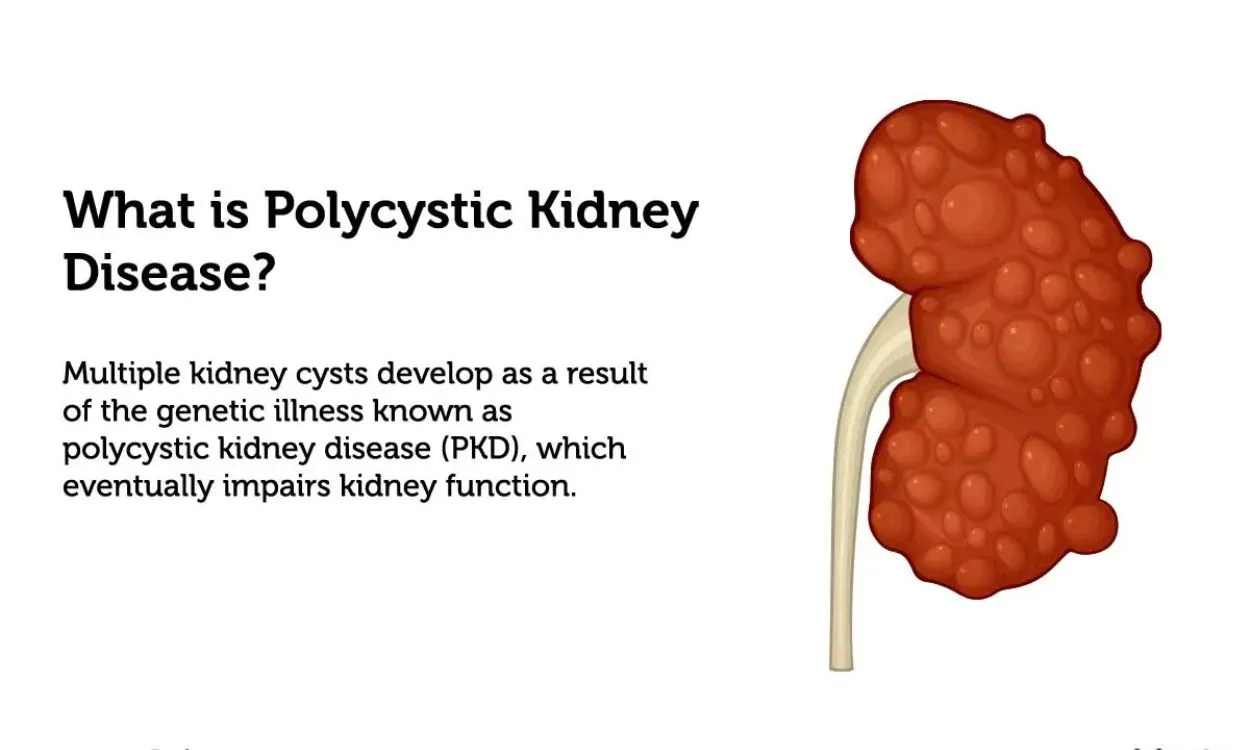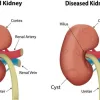What is Polycystic Kidney Disease (PKD)?
Polycystic Kidney Disease (PKD) is a genetic disorder characterized by the growth of cysts in the kidneys. These cysts are sac-like structures filled with fluid, and over time, they can enlarge and multiply, causing the kidneys to become enlarged and lose their normal function. PKD is one of the most common inherited kidney diseases, affecting thousands of people in India.
Types of PKD
There are two main types of PKD:
- Autosomal Dominant PKD (ADPKD): This is the most common form of PKD, accounting for about 90% of all cases. It is usually inherited from a parent who has the disease, and symptoms typically develop in adulthood. ADPKD can lead to various complications, including high blood pressure, kidney stones, and kidney failure.
- Autosomal Recessive PKD (ARPKD): This is a rare form of PKD that is typically diagnosed in childhood or infancy. Unlike ADPKD, it is inherited when both parents carry the faulty gene. ARPKD can affect other organs in addition to the kidneys and is often more severe than ADPKD.
Symptoms and Complications
The symptoms of PKD can vary depending on the type and severity of the disease. Common signs and symptoms include:
- Abdominal pain or discomfort
- Blood in the urine
- Frequent urination
- High blood pressure
- Kidney stones
- Urinary tract infections
- Fatigue
- Headaches
As PKD progresses, complications may arise, such as:
- Kidney failure: The cysts can gradually replace healthy kidney tissue, leading to a decline in kidney function and the need for dialysis or a kidney transplant.
- Cysts in other organs: In some cases, cysts can develop in other organs such as the liver, pancreas, and spleen, causing additional health problems.
- Cardiovascular issues: High blood pressure and kidney disease can increase the risk of heart disease and stroke.
Diagnosis and Treatment
PKD is usually diagnosed through a combination of medical history, physical examination, imaging tests (such as ultrasound or MRI), and genetic testing. It is important to diagnose PKD early to monitor the progression of the disease and manage symptoms effectively.
While there is no cure for PKD, treatment focuses on managing symptoms, slowing the progression of the disease, and preventing complications. Treatment options may include:
- Medications: Medications to control blood pressure, manage pain, and prevent urinary tract infections may be prescribed.
- Lifestyle changes: Adopting a healthy lifestyle, including regular exercise, maintaining a balanced diet, and managing stress, can help manage symptoms and slow disease progression.
- Dialysis and kidney transplant: In cases of kidney failure, dialysis or a kidney transplant may be required to replace the function of the damaged kidneys.
Fitpaa and PKD
While Fitpaa primarily focuses on overall health and fitness goals, it can also be a valuable tool for individuals with PKD. Maintaining a healthy lifestyle, managing blood pressure, and staying active are crucial for managing the progression of PKD and preventing complications.
Fitpaa’s personalized fitness plans, nutrition guidance, and real-time tracking features can help individuals with PKD stay on top of their health goals. By following the Fitpaa Capsule, individuals can ensure they are getting the right nutrients, engaging in appropriate exercises, and monitoring their overall well-being.
However, it is important to consult with healthcare professionals, such as nephrologists and nutritionists specialized in kidney disease, for personalized advice and guidance specific to PKD management.
Download the Fitpaa App for a Holistic Approach to Health and Fitness
If you are looking for a comprehensive solution to manage your health and fitness goals, including PKD management, the Fitpaa app can be a valuable resource. With a dedicated team of fitness planners, nutritionists, and doctors, Fitpaa offers personalized fitness plans, nutrition guidance, and real-time tracking features to help you achieve your goals.
Through the Fitpaa Capsule, you can receive a scientifically-designed plan that combines medical therapy, exercise therapy, nutrition therapy, and cognitive behavior therapy to optimize your metabolism and help you achieve your health and fitness goals. The Fitpaa app provides tools such as a virtual workout trainer, diet tracker, performance tracking, and progress tracking, making it easy to follow your personalized plan.
With Fitpaa’s commitment to guaranteed results, lifetime validity of services, and a risk-free trial, you can trust that your health and fitness goals are in good hands.
Take the first step towards a healthier, fitter you by downloading the Fitpaa app today and experience the joy of achieving your health and fitness goals with guaranteed results.









